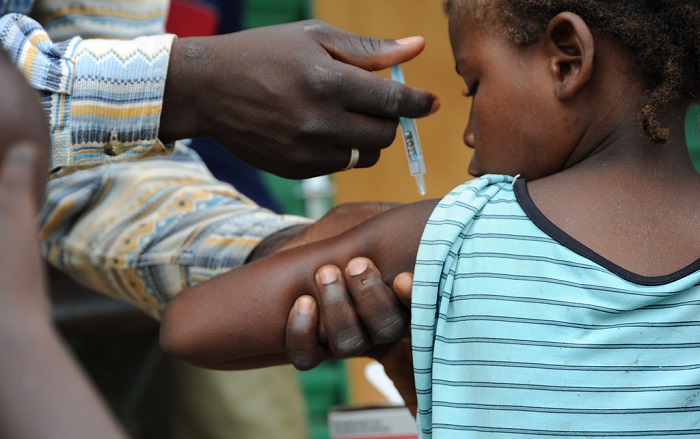
Children vaccinated against Meningitis A
Children aged 18 months started receiving vaccination against Meningitis A, from Tuesday, November 1, to avert the spread of the disease.
Advertisement
The vaccine does not cover all forms of meningitis but only Sero-group A, and it would be given as part of routine immunisation campaign to protect children against the disease, which is said to be responsible for meningitis outbreaks in Ghana.
The move is a collaborative effort among the Ghana Health Service (GHS), the World Health Organisation (WHO) and the Programme for Appropriate Technology in Health (PATH) to fight the disease which, health officials indicate, claims many lives within a short period.
Briefing the press on the new vaccine in Ho, the Deputy Volta Regional Director of Public Health, Dr Yaw Ofori Yeboah, stated that conditions were suitable for the introduction of the vaccine to be part of the already 13 vaccines available in the various health facilities.
The disease
Meningococcal Meningitis is a bacterium form of meningitis, a serious infection of the meninges (brain membrane) which causes serious damage to the brain and is fatal in 50 per cent of cases if not treated.
Dr Ofori Yeboah explained that there were five major Sero-groups of meningococcal diseases namely; A, B, C, Y and W, which were common in Ghana, with A, C and W associated with epidemic situations.
However, Sero-group A (Men A) has historically been the main cause of epidemics in Ghana and Africa at large with the country recording the highest cases and death in 1996/97 with 18,703 cases and 1,356 deaths from the three regions in the north.
Child welfare clinics are to ensure that such children receive the vaccines while community health nurses are also to play their role of immunising children in the various communities.
Outbreak last year
Last year’s outbreak, which saw a rare situation of people from the southern part of the country experiencing the disease, has necessitated the nationwide immunisation.
According to Dr Ofori Yeboah, the vaccine was entirely not new to the country as it had been used in parts of the country such as the Northern, Upper West and Upper East regions, where the disease was very common. He, however, indicated that it was being incorporated into the routine immunisation campaign for the first time this year.
“The vaccine is very potent and safe and, therefore, should not be a source of worry for mothers,” he stated.
He advised mothers whose children were within the age bracket to ensure their safety, by getting them immunised against the disease because “even when the disease is diagnosed early and adequate treatment is started, five to 10 per cent of patients die often within 24 to 48 hours after the onset of symptoms.”
Explaining further, Dr Ofori Yeboah said even when the patient is not killed by the disease, he or she can have severe complications such as brain damage or hearing loss, which is nothing to be happy about.
Media information
The Regional Co-ordinator of Expanded Programme Immunisation, Mr Godwin Afegbe, educated the media on the disease and the importance of the vaccination.
The media briefing was to help equip the practitioners with adequate information on the new vaccine.




